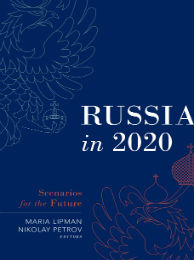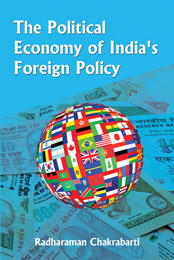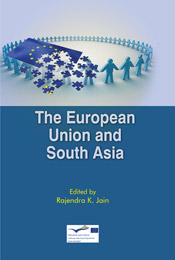Subjects
Recent View(s)
- China and the Developing World: Beijing's Strategy for the Twenty-First Century
- A Leap Forward: Capacity Building, Education and India-Afghanistan Cooperation
- Kurdistan The Quest for Representation and Self Determination
- Rafale, Raga, Reuniting Forces for 2019!
- China’s Game Plan in Ladakh: Imperatives for India
A Leap Forward: Capacity Building, Education and India-Afghanistan Cooperation
Anwesha Ghosh
Since 2001, Afghanistan has provided New Delhi an opportunity to underline its role as a regional power. In the rapidly evolving geo-strategic scenario, India was forced to reconstitute and reassess its policies towards Afghanistan. India-Afghanistan Cooperation took a leap forward after the defeat of the Taliban and the installation of an Interim Authority. India’s main focus has been to support the Afghan government and the political process in the country mandated under the Bonn Agreement of 2001. In the past decade, India pursued a policy of high-level engagement with Afghanistan through wide-ranging humanitarian, financial and infrastructural project assistance, as well as participation in international efforts aimed at political and economic rebuilding of Afghanistan. India has growing stakes in peace and stability in Afghanistan and the 2011 India-Afghanistan Strategic Partnership Agreement underlines India’s commitment to ensure that a positive momentum in the Indo-Afghanistan ties in maintained. One of the foremost aims of India’s involvement in Afghanistan has been to assist in building indigenous Afghan capacity and institutions which encompasses all the sectors of development. This book, apart from examining the changing trajectory of India’s policy towards Afghanistan, focuses on two particular areas of Indian intervention in Afghanistan namely Capacity Building and Education. It also evaluates its importance in strengthening the Delhi-Kabul ties. Identification of factors that are aiding or blockading the smooth functioning of these policies, have been the purpose of this academic pursuit. Attempts have been made to reach out to the Afghan beneficiaries in both India and Afghanistan, in order to understand their perspectives, requirements and disgruntlements. This research underscores that the purpose behind India’s involvement in Afghanistan should not be defeated and thereby attempts to put forward certain steps and directions that can be adopted by Indian Government in order to achieve long-lasting dividends by smooth implementation of India’s aid disbursement policy. As US led North Atlantic Treaty Organization forces prepare to leave Afghanistan in 2014, India stands at a crossroads as it remains keen to preserve its interest in Afghanistan. This book apart from underlying ever-evolving Indian policy in Afghanistan provides concrete recommendations that can enhance the effectiveness of ongoing Indo-Afghanistan cooperation.


 Political Science
Political Science



